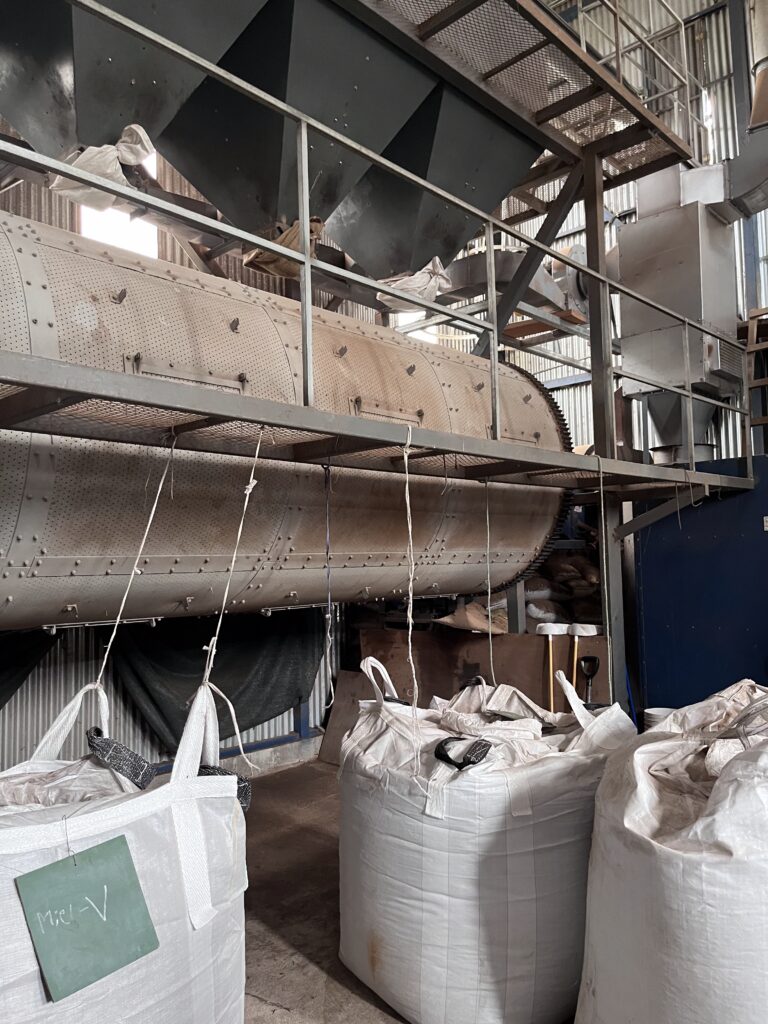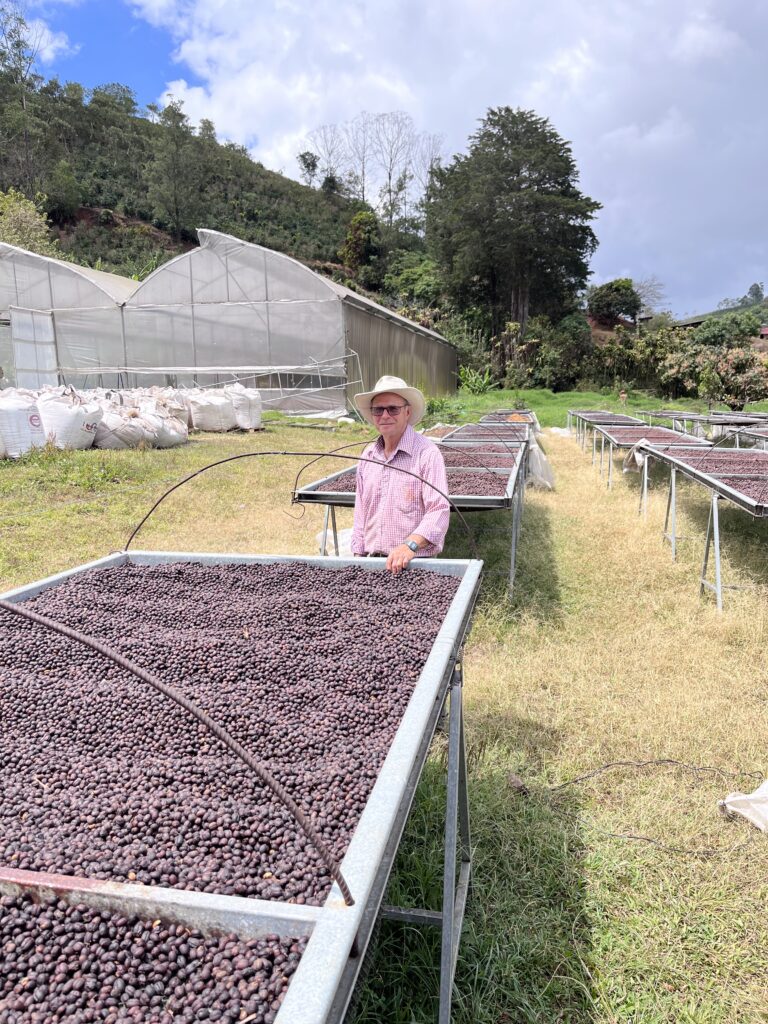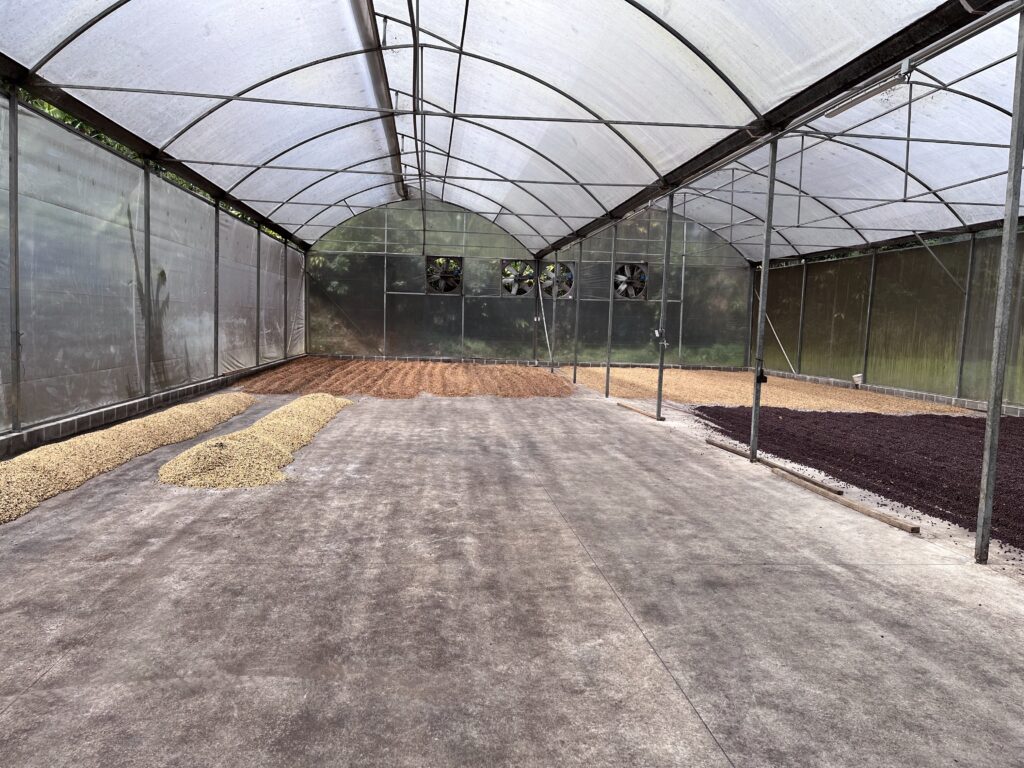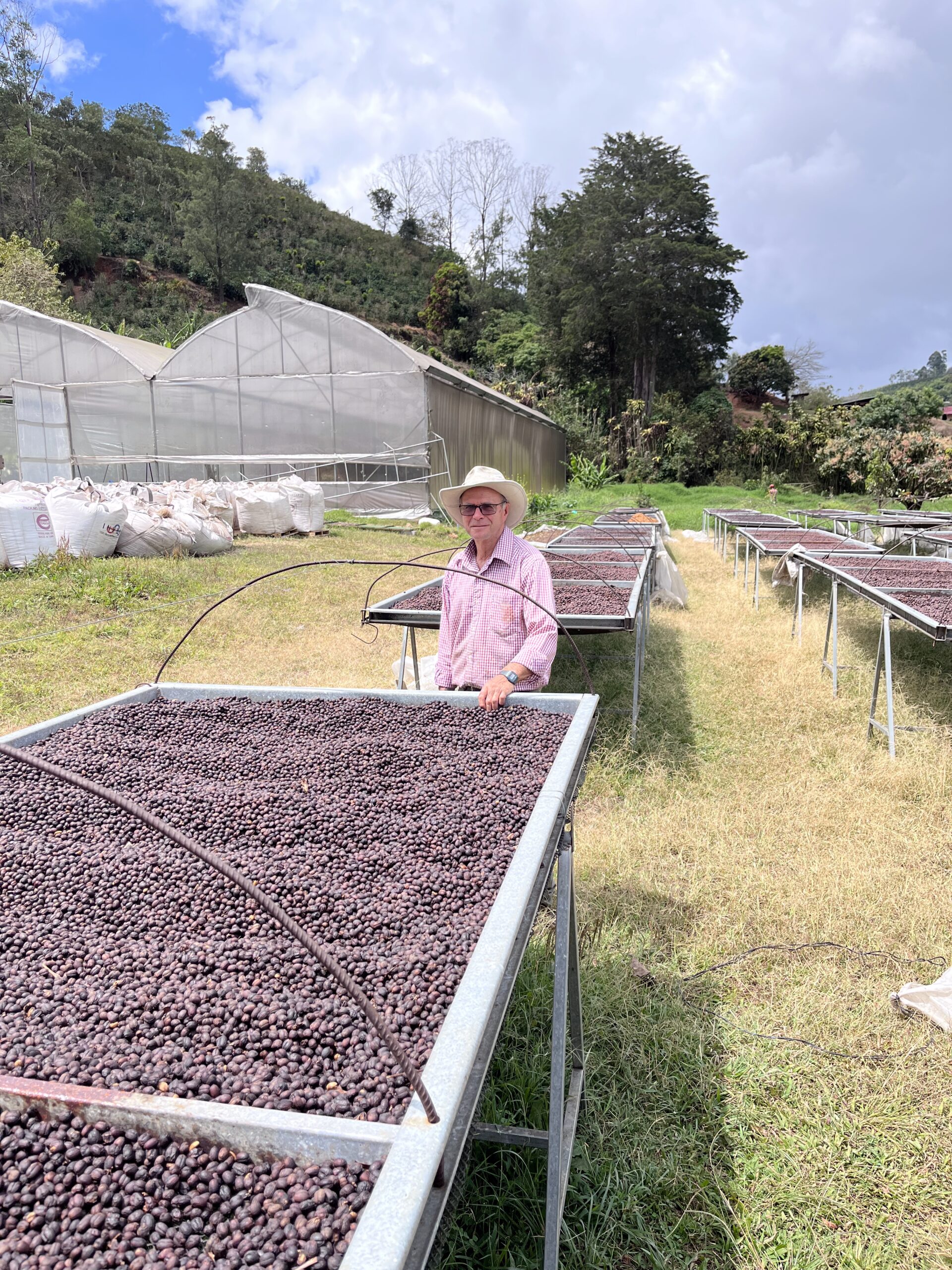Pura Vida: Tradition and Innovation in Tarrazu
Nestled in the renowned Tarrazu region, Don Roberto Mata’s beneficio buzzes with activity during the harvest season. Despite his busy schedule overseeing the processing of freshly harvested cherries, Don Roberto graciously shared insights about his operation and export practices to Germany.
Before establishing his own beneficio, Don Roberto served as general manager of Coopedota for many years, bringing valuable experience to his current venture where he manages both a large finca and processing plant. His expertise is particularly valuable in navigating today’s challenging market conditions.
Climate shifts have impacted Tarrazu significantly, with regional green coffee production down 15-20% this year. This local decrease coincides with global coffee shortages stemming from production issues in Brazil and other major growing regions. While the resulting price increases benefit producers, they’ve also created an interesting market dynamic – many local farmers now sell their cherries directly to multinational companies, reducing availability for specialty micro lots.



Don Roberto’s operation produces approximately nine containers of coffee annually, offering both natural and washed processes. Traditionally, his beans dry on African beds, but this year’s condensed harvest period has brought unusually large volumes in a short timeframe, necessitating additional patio drying. After fermentation, beans move to an impressive dryer fueled by cascara, where temperature is electronically maintained at around 50°C. This stage demands careful monitoring of both humidity levels and bean density.
During our visit, we examined several samples, including some with remarkably high density measurements around 850. The smaller beans, while not meeting export quality standards for washed coffee, find their market domestically. Interestingly, these beans often produce excellent flavor profiles despite their size – a reminder that specialty coffee quality transcends simple visual metrics.
After processing and drying, the beans rest in massive one-ton sacks until preparation for transport, allowing flavors to stabilize before their journey to international markets.
Key Facts
Altitude: 1800 masl
Location: San Marcos, Tarrazu, Costa Rica
Varieties: Catuai, Caturra, Geisha
Processing: Washed, Natural, Honey
Notable Equipment: Large-scale cascara-powered mechanical dryer
This is a post in the Coffee Adventure Series
